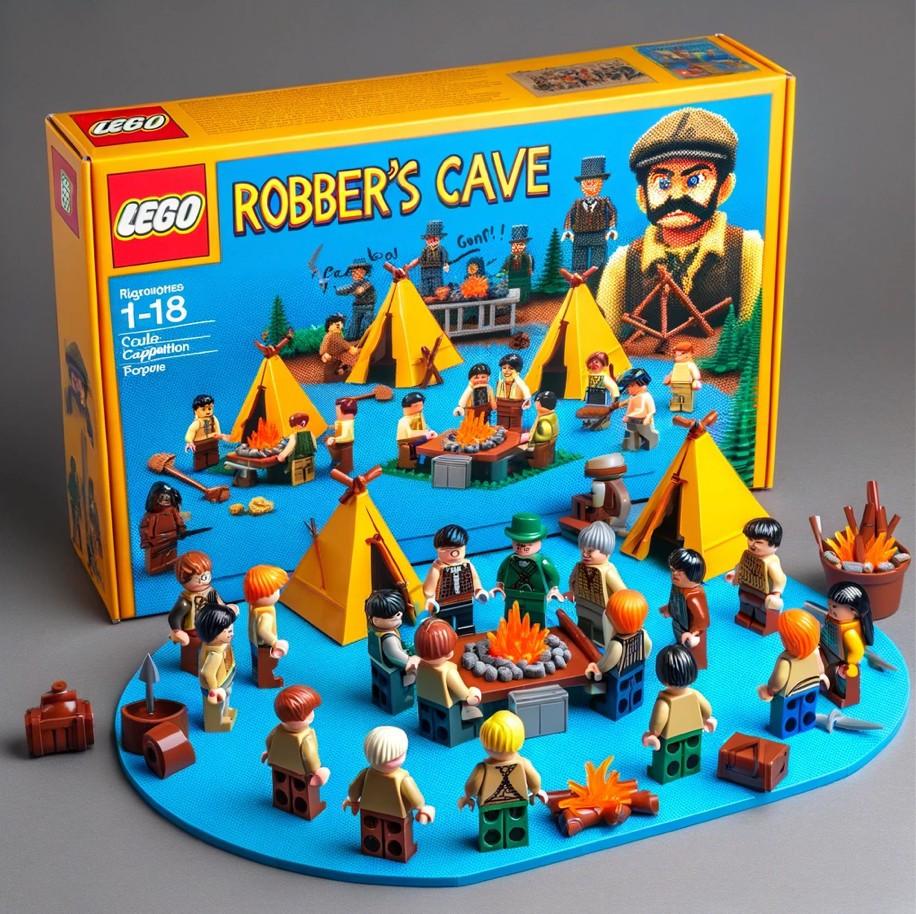Psychologists have long used LEGO as a therapeutic tool with children and adult clients. But cognitive scientist Tomer Ullman, head of Harvard’s Computation, Cognition, and Development lab, has taken it up a notch. He used AI to recreate some of psychology’s most famous experiments as LEGO playsets for psychology buffs.
Here’s a couple of my favourites. First up, Milgram’s Obedience to Authority experiment.
It’s probably too much to expect AI to get the experimental set up right. I took a long time to get a grip on what was actually involved myself, piecing together what actually happened in his lab by listening to hours of audio recordings of the experiment and reading his instructions to staff.
In total, Milgram conducted 24 variations of the obedience experiment, each with around 40 subjects, each using different actors, scripts and laboratory set ups.

But if the Obedience to Authority playset is complicated and kind of creepy, the Robbers Cave experiment playset is cute. There the boys are, clustered around a campfire, two warring tribes reconciled at last. Or so Muzafer Sherif would have us believe.
There’s something simple and appealing about these AI generated playsets, that reminds me of the accounts of these experiments often presented in psychology textbooks where they often stripped of complexity and given a clear moral message.
But behind the scenes, in the archival papers, in the data and observation reports, in the accounts of staff and participants, a more complicated and troubling version of these experiments emerges. Something not even AI can capture.
See all of the playsets here.


Comments are closed.